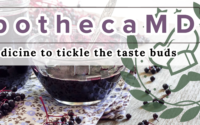Therapeutic effects and mechanisms of action of ginger and its bioactive components on inflammatory response, oxidative stress, the immune system, and organ failure in sepsis: a comprehensive systematic review
Nutr Rev. 2023 Dec 15:nuad156. doi: 10.1093/nutrit/nuad156. Online ahead of print.
ABSTRACT
CONTEXT: Sepsis refers to a usually lethal medical condition that results from an extreme, uncontrolled, and multifaceted immune system response to infection. Ginger (Zingiber officinale Roscoe; Zingiberaceae) is 1 of the most popular spice. It is widely used as a traditional herb and as medicine in the treatment of some inflammatory conditions, such as vomiting, pain, cancer, diabetes, and cardiovascular diseases, because of its varied medical characteristics, including anti-inflammatory, antioxidant, antimicrobial, and antitumor effects.
OBJECTIVE: The aim of this study was to demonstrate the potential roles of ginger and its elements in sepsis.
DATA SOURCES: This systematic review article was conducted and reported by following the guideline of the Preferred Reporting for Systematic Reviews (PRISMA). Electronic databases, including Web of Sciences, Google Scholar, PubMed, Scopus, and ProQuest, were searched using related key words up to January 2023.
DATA EXTRACTION: Among 141 found articles, 48 eligible articles were included and reviewed for their details. Data were extracted, including the first author’s name, year of publication, name of origin country, study design, number and type of subject, dosage and type of intervention, study duration, assay, and main results.
DATA ANALYSIS: The data from the included articles showed that ginger and its bioactive elements, such as gingerol (1-300 µg/mL or 1-100 mg/kg for 24 hours to 14 days), shogaol (0.2-100 µg/mL or 10-40 mg/kg body weight for 24 hours to 8 days), gingerdione (1-100 µg/mL for 20-48 hours), and zingerone (2-20 µM for 4 hours to 8 days), can be effective in sepsis via suppressing the gene expression and production of pro-inflammatory cytokines and oxidant agents, downregulating immune response, and protecting against sepsis-induced organ failures in experimental and animal models.
CONCLUSION: Ginger has potential therapeutic effects in sepsis. Human clinical trials are recommended.
SYSTEMATIC REVIEW REGISTRATION: PROSPERO registration no. CRD42023373613.
PMID:38102801 | DOI:10.1093/nutrit/nuad156

